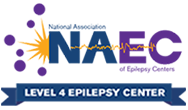As we age, our spines undergo normal wear-and-tear. However, when this natural degenerative process starts to cause chronic pain, this is considered degenerative disc disease (DDD). The breakdown doesn’t occur in the bones (vertebrae) of the spine but in the intervertebral discs. These rubbery discs serve as cushions that brace the spine from impact and other daily activities. Over time, these discs rub together and become thinner and thinner, much like the brake pads in a car.
Degenerative Disc Disease Symptoms
Almost everyone’s spinal discs degenerate over time, but not everyone gets pain from this process. Your symptoms will be localized in the area where the weak disc is located.
Common symptoms include:
- Pain in the lower back, buttocks, or upper thighs
- Pain that worsens when sitting, improving when you move and walk
- Pain that worsens when you bend, lift, or twist
- Pain that comes and goes
- Pain that gets better when you lie down or change positions
In some cases, DDD can affect the nerves in the spine. This can cause numbness, weakness, and tingling in the arms and legs.
Degenerative Disc Disease Diagnosis
Your doctor will ask you a variety of questions to obtain a detailed family and personal medical history. They will ask you when the pain started, which area of your back hurts, and evaluate your symptoms. Your doctor may order one or more imaging tests, including X-Rays or MRIs to check for bone or nerve damage.
Degenerative Disc Disease Treatments
Treatment of DDD is aimed at managing symptoms. The goal is to decrease pain, improve mobility, and prevent further damage. Based on the severity of your symptoms, your doctor will recommend a treatment plan for you.
Medications such as ibuprofen and aspirin can help reduce pain and inflammation. If you have muscle spasms, there is a medication for that as well.
Physical therapy can help to strengthen the muscles in the neck and back to better support the spine and increase flexibility. In most cases, PT and medication are the ideal treatment plan.
In severe cases, your doctor may recommend a steroid shot or surgery. A discectomy removes the injured part of a disc, taking pressure off the nerves. In some cases, your doctor may recommend an artificial disc replacement or spinal fusion.
For a comprehensive evaluation from the experts at Brain2Spine Institute, call 727-828-8400.






